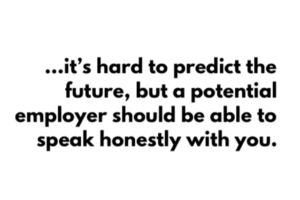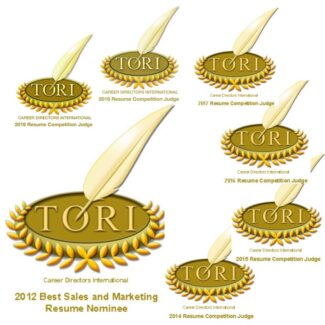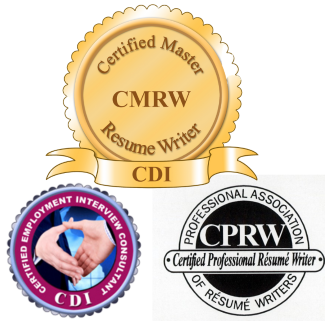 In the last week of April, 3.8 million Americans had filed unemployment claims amidst the COVID-9 pandemic– bringing the six-week total to around 30 million. The good news is it was the fourth consecutive week of falls in numbers of new claims. With the country opening up swiftly, it is a crucial time for people looking for a new job or an opportunity for a change.
In the last week of April, 3.8 million Americans had filed unemployment claims amidst the COVID-9 pandemic– bringing the six-week total to around 30 million. The good news is it was the fourth consecutive week of falls in numbers of new claims. With the country opening up swiftly, it is a crucial time for people looking for a new job or an opportunity for a change.
It’s likely that during these unprecedented circumstances, you’ve been provided with more time to contemplate and anticipate your career trajectory, and decide if it’s really headed in a direction that’s the best for you. As a result, perhaps your attitude towards work, and what you want to achieve out of that work might have undergone a shift too.
The questions you ask a future employer post COVID-19 aren’t going to be the same either. To make things easier for you, here are a few questions you should consider asking:
1) How do you ensure the organizational culture is maintained when working in a hybrid environment?
Post the COVID-19 pandemic, dissimilarities in employee preferences, circumstances, and requirements within the same workforce could give way to the rise of hybrid teams, i.e. teams in which several members work in the one co-located workplace while others work remotely. Therefore, each day at your potential workplace could feel very different.
These are unexplored waters for many employers, and will get new challenges their way. So it could be a good idea to understand how they plan to (or are already) lead their hybrid teams, and if they’ve grasped any new lessons from the extended period of remote leadership they’ve most probably experienced over the past few months.
The culture of an organisation is its soul – it requires a considerable amount of effort from all employees in order to bring it alive and, most importantly, keep it that way – in times good and bad. This new hybrid way of working is going to get along a whole new set of challenges when it comes to building on and maintaining an organisation’s culture. So, it’s important to understand what steps the organisation’s plan of action in this respect.
2) What are the strategic priorities of the organization, and have these changed due to the Crisis?
Business models are swiftly pivoting to adapt to the new world, galvanizing entire workforces in order to ensure they are met and exceeded. The COVID-19 pandemic has forced all businesses to stress on business continuity planning and have a robust strategy for ensuring ongoing operations amidst crisis-like situations.
As a potential new employee – someone who is likely now looking for more meaning in their role – it’s important for you to understand these two things:
- what the organization’s latest strategic priorities are, and
- how your role will contribute to attaining them.
It is also the employer’s responsibility to present facts that will give you some sort of reassurance that the organization is continually adapting and innovating to secure a strong position in the next era of work.
3) What changes have been made to safety protocols?
It can be seen that a number of organizations are taking new, improvised measures to keep their employees safe from COVID-19. While some have augmented their efforts toward maintaining optimal hygiene, some others are providing their workforce with masks, gloves, and other protective gear.
Irrespective of whether a health emergency is in effect or not, COVID-19 has surely taught us that certain things need to be thought over beforehand. Therefore, an interviewer should be able to tell you about any changes to workplace safety protocols related to the organization’s preparedness toward facing health emergencies of such magnitude in the future.
It is also important for you to ask how the organization communicates real-time health updates with its employees. For instance, if there’s an important public health announcement while you’re at work, how does the employer plan on keeping the staff informed?
4) What is your sick leave policy?
Under Occupational Safety and Health Administration (OSHA) rules, employers have a duty to protect employees against known hazards in the workplace. “If one does not already exist, develop an infectious disease preparedness and response plan that can help guide protective actions against COVID-19,” the government body said in its Guidance on Preparing Workplaces for COVID-19 whitepaper.
It is extremely vital that you ask your potential employer to provide information about the company’s sick leave policy.
The federal government’s new paid sick leave policy is a stride in the right direction, but it isn’t without loopholes either. To begin with, not every employee will be guaranteed enough sick leave through this policy to manage COVID-19. But employers may have their own policies that go beyond what’s required. Therefore, it is vital you ask these things before accepting a job offer.
Keep in mind that some employers will ask for documentation of illness, like a doctor’s note. Ask the potential employer for policy details to find out what you’d need to do to gain access to these sick leaves.
5) How do you plan to support lifelong learning for employees?
During the pandemic, we have all been woken up to the fact that everything can change in the blink of an eye. Therefore, we must do everything we can to make sure that we are as agile and adaptable as possible – meaning professional development and upskilling may have climbed up our priority list over the past few months.
Therefore, it’s critical that you feel self-assured when it comes to joining an organization and know that it genuinely supports its employees in upskilling, giving them the independence to pilot their own personalized learning in a way that works for them.
Another important thing to remember here is – post-pandemic, remote working will no longer be considered a perk. Business leaders are expecting to see a permanent shift to more remote working where that is physically possible – giving people the freedom to work from wherever they want to, but this is relatively new territory for many organisations, so it’s important to understand what support you will be provided with, whether that be in the form of equipment, training or well-being programs.
Lastly, some jobs and industries are facing more precariousness than others because of the Coronavirus pandemic. As of now, it is hard to predict the future, but a potential employer should be able to speak honestly with you. Once you get the answers to these questions, you’ll be able rise above all the uncertainties and make a more informed decision.

